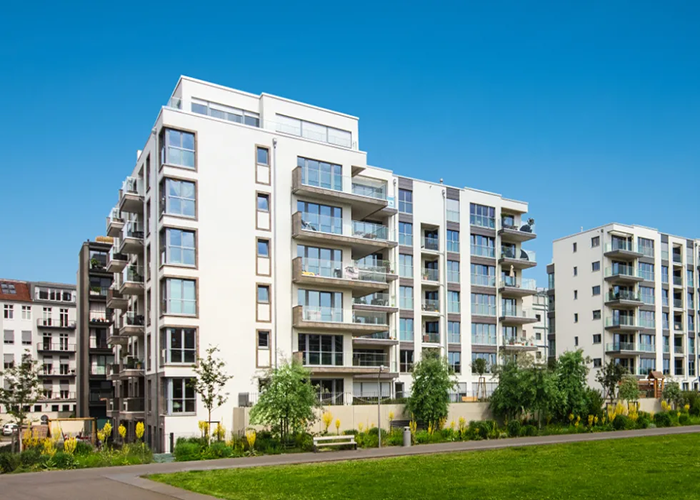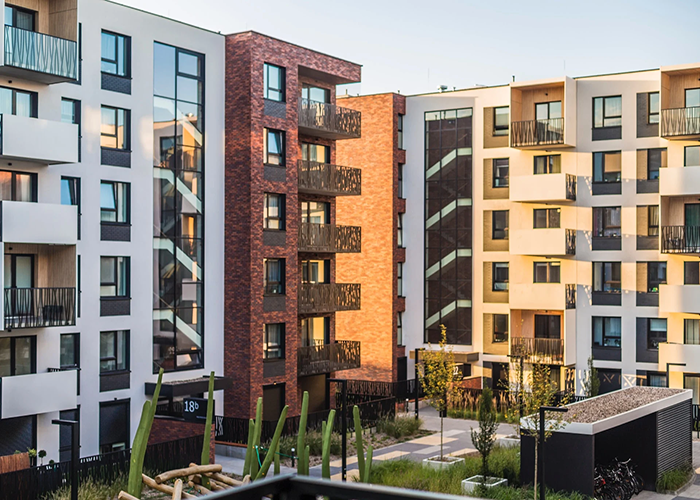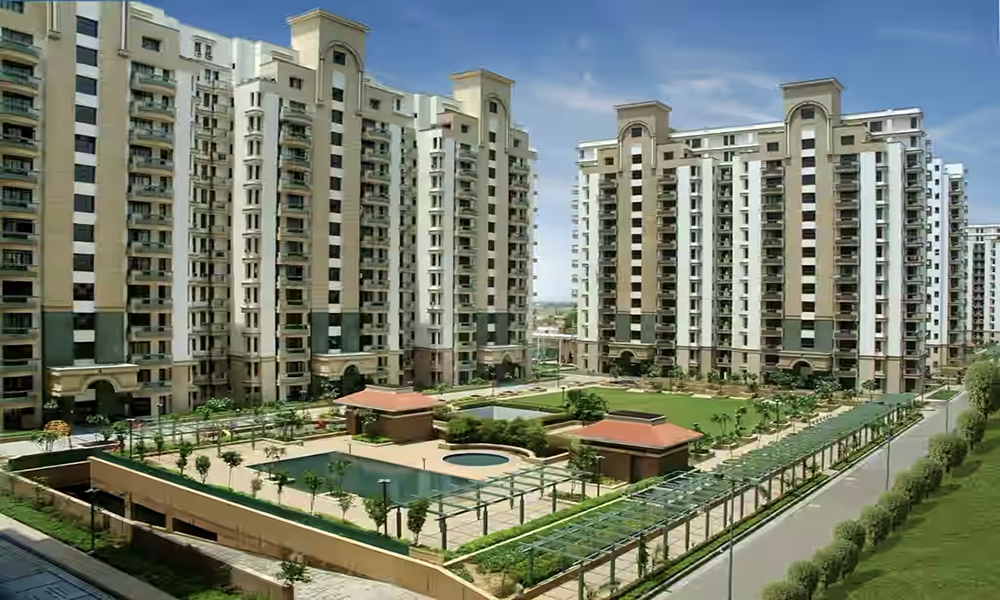Sustainable Water and Wastewater Treatment Solutions for Residential Apartment Complexes Using STP, ETP, WTP, WWTP, and RO Technologies

Rapid urbanization in India has led to a significant rise in residential apartment complexes, especially in metropolitan states like Maharashtra. Cities like Mumbai, Pune, and Nagpur are witnessing vertical growth, with multi-story housing societies accommodating thousands of residents. These residential hubs are becoming self-contained ecosystems with recreational areas, gyms, swimming pools, and shopping amenities.
In Maharashtra, real estate developers focus on modern, eco-conscious township planning. These developments require efficient infrastructure, including reliable water supply and effective wastewater management systems. As water scarcity becomes a pressing issue, managing the water lifecycle in residential complexes is no longer optional but essential. It's not just about availability but also safe, sustainable use and disposal. Consequently, implementing in-house water treatment systems is gaining importance in premium and mid-segment apartment projects.
Understanding Water Demand and Usage in Residential Apartment Complexes for Daily Living and Common Amenities
Residential apartments have consistent and substantial water needs. Every unit requires drinking, bathing, laundry, cooking, and sanitation water. In addition to personal use, communal areas like gardens, clubhouses, swimming pools, and parking lots further increase the demand. This necessitates a dependable water source, often municipal supply and borewell water.
Water is also required to clean staircases, lobbies, and lifts and maintain hygiene. Some upscale societies include features like rainwater harvesting systems, pressure booster pumps, and advanced water filtration units to ensure continuous and clean water availability. Meeting these needs without straining local water reserves is a significant challenge. That's where water treatment systems come in—purifying water for consumption and recycling wastewater for reuse in irrigation, toilet flushing, and cleaning. By treating and reusing water onsite, residential societies can drastically reduce freshwater dependency while ensuring resident satisfaction.
Key Household and Maintenance Activities in Apartments That Lead to Wastewater Generation Every Day
Residential apartments generate wastewater from numerous daily activities. Bathroom use—including showers, sinks, and toilets—produces the largest share, contributing both greywater and blackwater. Washing machines and dishwashers also generate greywater with detergents and grease content. In kitchens, wastewater results from dishwashing, vegetable cleaning, and floor mopping.
"In a modern residential community, water and a shared responsibility are necessary. From drinking to cleaning and from comfort to sanitation, every drop counts. Efficient treatment and reuse of water within residential complexes isn't just good practice—it's a step toward sustainable, responsible urban living for generations to come."
Outside individual flats, shared facilities like swimming pools, car washing stations, and community washrooms add to wastewater output. Cleaning staircases, corridors, basements, and recreational areas produces chemical-laden water. In societies with in-house salons or cafeterias, additional wastewater comes from food and cosmetic residues. These sources combined make residential apartments one of the urban zones' most consistent wastewater generators. Properly managing this outflow is essential to complying with municipal regulations and protecting the environment. Without treatment, untreated water could threaten groundwater, public health, and neighborhood ecosystems.
Types of Wastewater Discharged by Residential Apartments and Their Impact on Urban Water Cycles
Residential complexes discharge two main types of wastewater: greywater and blackwater. Greywater comes from sinks, showers, washing machines, and dishwashers. It typically contains soap, dirt, food particles, grease, and microfibers. Though relatively less polluted, greywater still requires treatment before reuse or discharge. Blackwater from toilets contains human waste and harmful pathogens, demanding more advanced biological treatment.
Other wastewater sources include water from cleaning chemicals used in common areas and chlorinated water from swimming pools. These can contribute to waterborne diseases, foul smells, and environmental degradation when not treated. Moreover, nutrient-rich wastewater can lead to algal blooms if released into nearby water bodies. This makes it imperative for apartment complexes to invest in suitable treatment solutions, particularly STPs, that can handle both grey and blackwater. Separating the two at the source can also optimize treatment processes and make water reuse more efficient and safer.
How Residential Apartment Societies Treat Their Wastewater Using Onsite STP and Advanced Filtration Systems
Most large residential complexes are now required by law to install sewage treatment plants (STPs). These systems first use screening to remove large solids, followed by primary treatment to allow the settling of heavier particles. Secondary treatment involves biological processes like MBBR or SBR that break down organic matter using microorganisms. After this, disinfection with chlorine or UV light eliminates pathogens
Most large residential complexes are now required by law to install sewage treatment plants (STPs). These systems first use screening to remove large solids, followed by primary treatment to allow the settling of heavier particles. Secondary treatment involves biological processes like MBBR or SBR that break down organic matter using microorganisms. After this, disinfection with chlorine or UV light eliminates pathogens
Using Modern Technology to Treat and Reuse Water in Residential Apartment Complexes Across Urban Areas
With technological advancements, residential societies are moving toward more innovative, efficient water treatment solutions. Compact STP units with MBBR, SBR, or MBR technologies now dominate urban apartment installations. These systems are energy-efficient, require minimal manual intervention, and produce high-quality treated water suitable for reuse.
Some societies also use advanced filtration systems such as Reverse Osmosis (RO) for water purification and sand-carbon filters for greywater treatment. IoT-based monitoring tools track system performance in real time, offering alerts for maintenance, pH imbalance, or leakage. Automation helps reduce manual errors and ensures consistency in water quality. Treated water can be pumped back into the system for landscaping, cooling towers, or flushing, creating a closed-loop model. This integration of technology not only meets government norms but also empowers communities to become self-reliant and eco-conscious. Adopting these systems future-proofs the residential infrastructure while supporting sustainability goals.
Our Expert Water Treatment Solutions Tailored for Residential Apartment Projects Across India and Maharashtra
We specialize in tailoring water treatment solutions for residential apartment complexes. From design to commissioning, our services cover all types of treatment systems—STPs, WTPs, ETPs, RO units, and reuse pipelines. We begin with a detailed assessment of your water usage patterns and wastewater generation, followed by customized system recommendations.
Our compact STPs are space-efficient, odor-free, and meet CPCB and local pollution board standards. We also offer automation panels, remote monitoring, and AMC (Annual Maintenance Contracts) to ensure seamless operation post-installation. Whether your society is under construction or already occupied, we provide retrofitting and upgrade services, too. Our approach is consultative, focusing on long-term value and environmental compliance. By partnering with us, your residential complex secures water efficiency and builds a sustainable model for modern urban living. Let us help you manage water the smart way.
Conclusion: Water Treatment in Residential Apartments:

Conclusion: Water Treatment in Residential Apartments:
Water is at the heart of every residential complex, influencing health, hygiene, and sustainability. As apartment living becomes the norm in urban India, managing water efficiently has become a priority. With increasing demand and finite freshwater sources, treating and reusing water within the premises is essential.
Modern treatment plants such as STPs and RO units are no longer luxuries but necessities for compliance, cost-saving, and sustainability. By separating and treating greywater and blackwater, societies can reduce waste, save money, and protect the environment. Advanced technologies and automation make water management brighter, cleaner, and more effective. As experts in this field, we provide end-to-end solutions that fit your space, budget, and goals. Residential apartments have the potential to become zero-discharge, water-positive communities—and with the right systems in place, that future is within reach.

